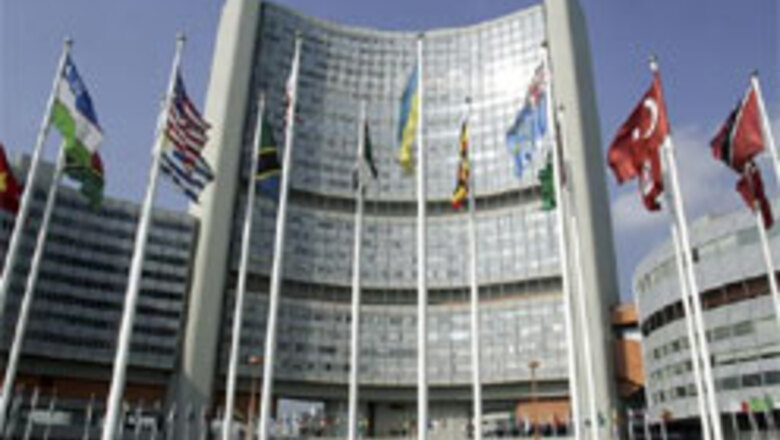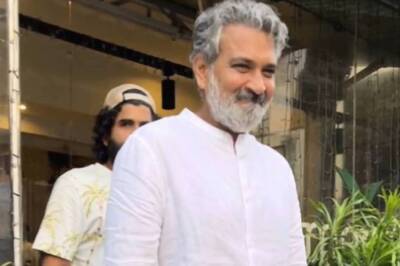
views
Vienna: The world's nuclear watchdog reported on Friday that Iran has flouted a UN Security Council call to suspend uranium enrichment, prompting Western powers to urge tougher UN action to curb Tehran's atomic programme.
US President George W Bush said he wanted peaceful persuasion to prevail. His Iranian counterpart vowed earlier to spurn any UN resolution to curb Tehran's nuclear work.
"It's very important for the Iranians to understand there is a common desire by a lot of nations in this world to convince them, peacefully convince them, that they ought to give up their weapons ambitions," Bush said, adding that he would keep consulting US allies on the issue.
Britain said it would ask the Security Council to increase pressure on Iran after the report by Mohamed ElBaradei, chief of the International Atomic Energy Agency (IAEA).
French Foreign Minister Philippe Douste-Blazy said the council should decide the next step, insisting on a peaceful way out of a "worrying situation for the international community".
The council could eventually impose sanctions on Iran, which has vowed to go on purifying uranium, whatever the consequences.
The IAEA also said Iran had pressed ahead with enrichment during a 30-day grace period and had not answered questions exploring whether its nuclear programme is purely civilian.
However, it noted that Iran promised in a letter received by the IAEA on Wednesday to provide a timetable within three weeks on answering such questions.
But the letter made this, as well as continued access for inspectors to declared nuclear sites, conditional on Iran's nuclear dossier staying with the IAEA.
This looked like a veiled threat to cut ties with the IAEA if the Security Council acts. Such a step could signal Iran's exit from the nuclear Non-Proliferation Treaty, diplomats said.
Hours before the IAEA report was circulated, President Mahmoud Ahmadinejad said Iran would disregard any UN measure to rein in its nuclear programme.
"Those who want to prevent Iranians from obtaining their right, should know that we do not give a damn about such resolutions," he told a rally in northwest Iran.
The report said IAEA tests confirmed Iran's claim this month to have enriched uranium with a cascade of 164 centrifuges to the low level needed to fuel nuclear power plants. It must be purified to a much higher level for bomb-making.
Iran was also building two new cascades of 164 centrifuges at its underground enrichment plant in Natanz.
"What is relevant is that they got the first 164-centrifuge cascade up and running and managed to produce low-enriched uranium," said a senior official versed with the report.
"The 164 centrifuges continue to spin as far as we know, and they are probably able to repeat the enrichment cycle at any point in time," said the official, who asked not to be named.
Ahmadinejad said Iran was ready to defy its foes.
"Enemies think that by threatening us, launching psychological warfare or imposing embargos they can dissuade our nation from obtaining nuclear technology," he said.
British Foreign Secretary Jack Straw said the Security Council should now send a stronger signal to Tehran.
This week Iran vowed to hit US targets worldwide if attacked by Washington, which has not ruled out military options if diplomacy fails to halt what it says is Tehran's quest for nuclear weapons. Iran says its programme is purely civilian.
The report said questions persisted over Iranian research on advanced "P-2" centrifuges, documents on how to design an atomic bomb core, and intelligence reports of links between uranium ore processing, high-explosives tests and a missile warhead design.
"With the information we have we cannot proceed any further. We are stuck," the senior official said, especially as Iran had since February refused to let the IAEA conduct short-notice visits to sites where it suspects undeclared nuclear activity.
The United States, backed by Britain and France, favours limited sanctions if Iran refuses to shelve enrichment quickly.
Russia and China, the Security Council's other two veto-holding permanent members who want to protect lucrative stakes in Iran's energy sector, have so far opposed such moves.
John Bolton, US ambassador to the United Nations, said the report made clear Iran had not complied with UN demands and said Washington would seek council approval of a resolution making those demands mandatory under international law.
China's UN ambassador Wang Guangya said almost all council members wanted a diplomatic solution to the Iran crisis.
"There are a lot of problems in the region and we should not do anything that would cause the situation to become even more complicated," he said when asked if Beijing would now back sanctions on Iran based on the findings of the IAEA report.
Chinese and US diplomats said the United States was trying to arrange a meeting on Iran of foreign ministers of the five permanent council members and Germany in New York on May 9.


















Comments
0 comment